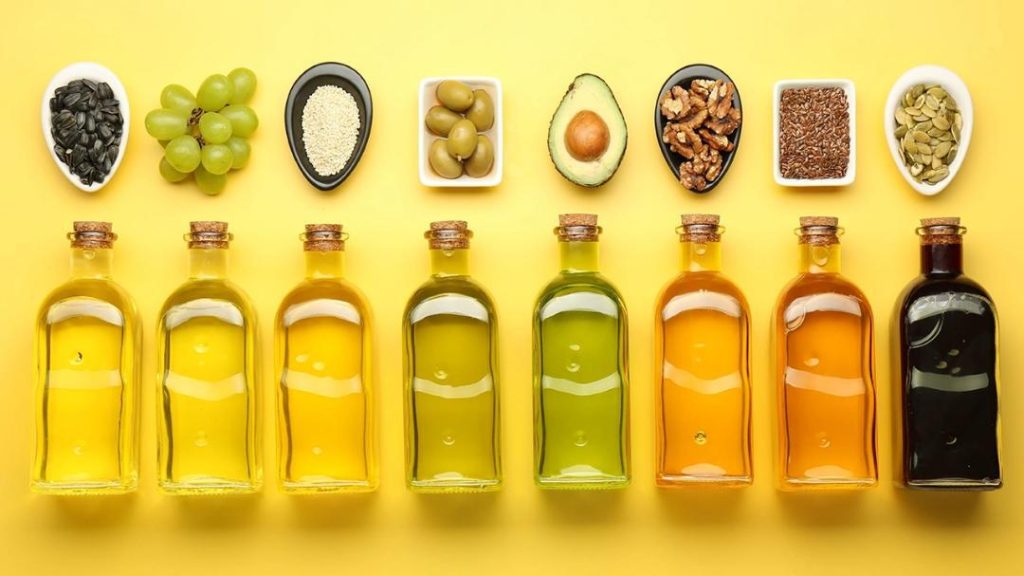
What do experts say about health hazards & benefits of seed oils?
Seed oils have been a topic of controversy in recent years, with some critics claiming that they pose significant health hazards due to their high content of unsaturated fatty acids and the potential presence of toxic byproducts like hexane. However, experts in the field of food science are debunking these myths and revealing the science behind the health benefits and risks associated with seed oils.
One of the primary concerns about seed oils is the use of hexane, a chemical considered hazardous in its gaseous form, during the extraction process. Hexane is used to extract oil from seeds, such as sunflower and canola, by dissolving the oil and then separating it from the solids. However, some critics claim that this process leaves behind a residue of hexane in the final product, which can be harmful to human health.
However, Eric Decker, a professor of food science at the University of Massachusetts, disputes this claim. According to Decker, the residue of hexane in seed oil is not dangerous. “The levels of hexane in seed oils are very low, and the body is capable of breaking it down quickly,” he said.
Another expert, a professor of food science at Ohio University, agrees with Decker’s assessment. “Seed oils don’t increase acute or chronic inflammation markers,” he said. “In fact, many seed oils have been shown to have anti-inflammatory properties, which can actually help to reduce the risk of chronic diseases like heart disease and cancer.”
So, what are the benefits of seed oils? For one, they are a rich source of healthy fats, including monounsaturated and polyunsaturated fats. These fats are important for heart health, as they can help to lower cholesterol levels and reduce the risk of heart disease. Seed oils are also a good source of omega-3 and omega-6 fatty acids, which are essential for brain function and immune function.
In addition to their nutritional benefits, seed oils have also been shown to have potential health benefits. For example, some studies have suggested that the antioxidants present in seed oils may help to protect against certain types of cancer, such as colon and breast cancer. Other studies have suggested that the anti-inflammatory properties of seed oils may help to reduce the risk of chronic diseases like arthritis and Alzheimer’s disease.
However, it’s important to note that not all seed oils are created equal. Some seed oils, such as those that are partially hydrogenated, may contain trans fats, which are known to increase the risk of heart disease. Additionally, some seed oils may be processed using high-heat methods, which can damage the delicate fatty acid structure and reduce the nutritional value of the oil.
So, how can you make sure that you’re choosing a healthy seed oil? Here are a few tips:
- Look for cold-pressed or expeller-pressed oils. These oils are extracted using mechanical methods, rather than chemicals, and are less likely to contain hexane or other harmful byproducts.
- Choose oils that are labeled as “unprocessed” or “non-GMO.” These oils are less likely to contain genetically modified organisms or added preservatives.
- Avoid oils that are partially hydrogenated or contain trans fats. These oils may increase the risk of heart disease and other health problems.
- Check the ingredient list. If the oil contains additives or preservatives, it’s best to choose a different brand.
In conclusion, while some critics may claim that seed oils are a health hazard, the scientific consensus is that they are a safe and healthy addition to a balanced diet. With their rich content of healthy fats, antioxidants, and anti-inflammatory compounds, seed oils may actually help to reduce the risk of chronic diseases like heart disease and cancer. By choosing cold-pressed, unprocessed, and non-GMO seed oils, you can reap the benefits of these healthy fats while minimizing your exposure to potential health risks.
Source:






